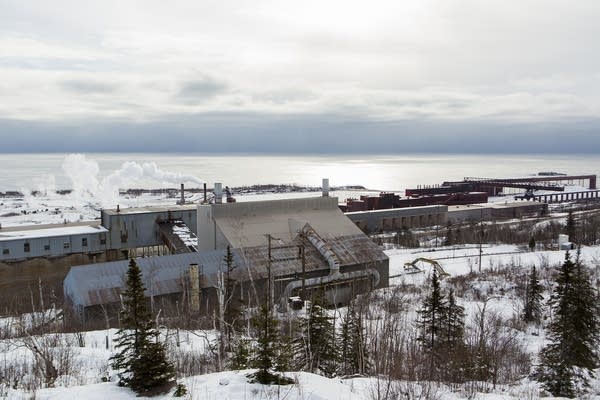Cliffs to idle Northshore Mining as fight over royalty fees intensifies

The Northshore Mining plant in Silver Bay, Minn.
Derek Montgomery for MPR News 2016
Go Deeper.
Create an account or log in to save stories.
Like this?
Thanks for liking this story! We have added it to a list of your favorite stories.


